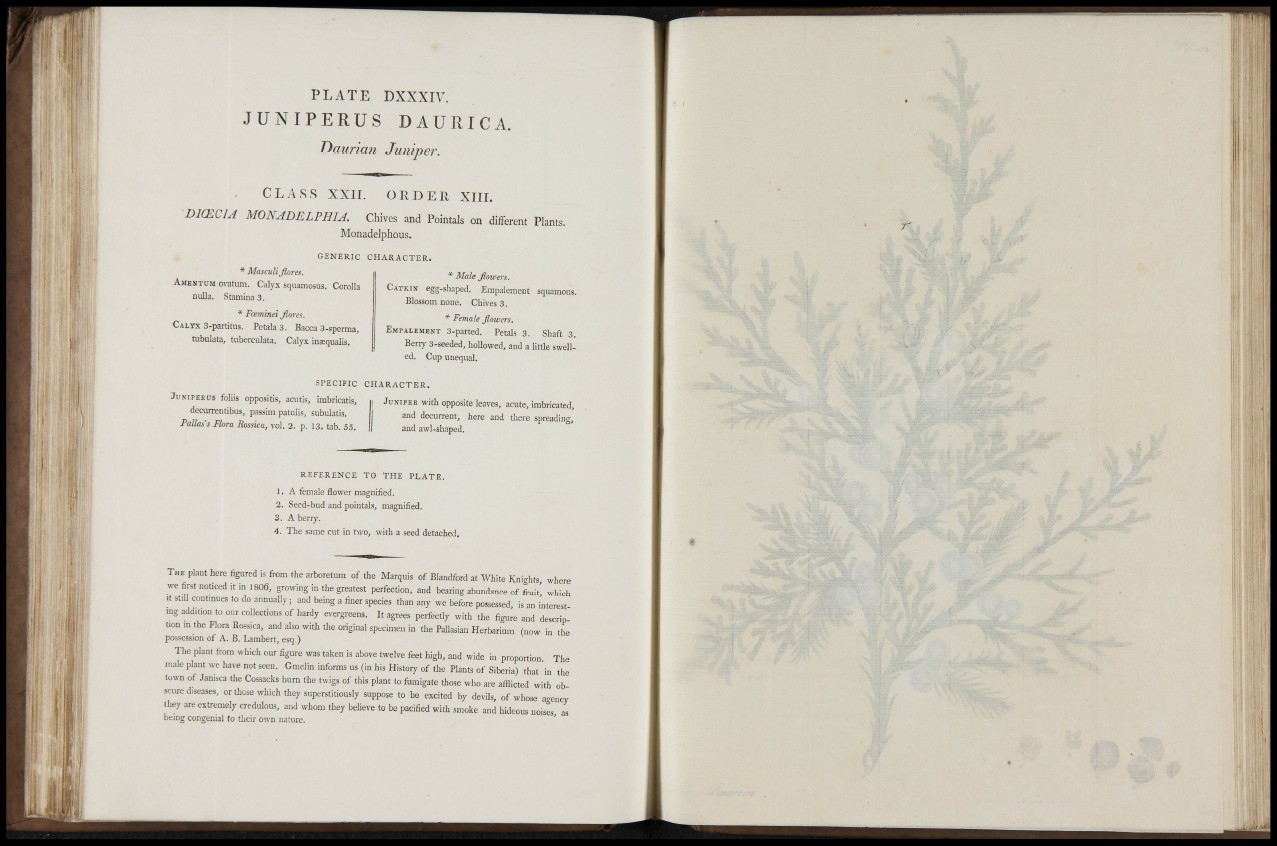
• H
i l
"J r:'
M i l
P L A T E DXXXIV.
J U N I P E R U S DAURICA.
Daunan Juniper.
C L x V S S XXir. ORDER XIIL
DIOECIA MONADELPHIA. Chives and Pointais on different Plants.
MonadeJphous,
GENERIC CHARACTER.
* Mascuüßores.
AMENTUM ovatum. Calyx squamosus. Corolla
nulla. Staminas.
* Foeminei ßores.
CALYX 3-pai-titus. Pétala 3. Bacca 3-sperma,
tubulata, tuberculata. Calyx ina:qualis.
* Male flowers.
CATKIN egg-shaped. Empalement squamous.
Blossom none. Chives 3.
* Female flo-wers.
EMPALEMENT 3-parted. Petals 3. Shaft 3.
Berry 3-seeded, hollowed, and a little swelled.
Cup unequal.
SPECIFIC CHARACTER.
JUN.PERUS foliis oppositis, acutis, imbricatis, „ JU^IPEE with opposite leaves, acute, imbricated,
and decurrent, here a decurrentibus, passim patulis, subulatis. nd there spreading.
Pallas's Flora Rossica, vol. 2. p. 13. tab. 55. and awl-shaped.
! 'lii
REFERENCE TO THE PLATE.
1. A female flower magnified.
2. Seed-bud and pointals, magnified.
3. A berry.
4. The same cut in two, with a seed detached.
T«E plant here figured is from the arboretum of the Marquis of Blandford at White Knights where
v e first noticed It in 1806, growing in the greatest perfection, and bearing abundance of fruit' which
U still continues lo do annually; and being a finer species than any we before possessed, is an interest
mg addition to our collections of hardy evergreens. It agrees perfectly with the figure and descrip
uon m the Flora Rossica, and also with the original specimen in the PaUasian Herbarium (now in the
possession of A. B. Lambert, esq.)
The plant from which our figure was taken is above twelve feet high, and wide in proportion The
male plant we have not seen. Gmelin informs us (in his History of the Plants of Siberia) that in the
town of Janisca the Cossacks burn the twigs of this plant to fomigate those who are afflicted with ob
scure diseases, or those which they superstitiously suppose to be excited by devils, of whose agency
they are extremely credulous, and whom they believe to be pacified with smoke and hideous noises as
being congenial to their own nature. "
: \